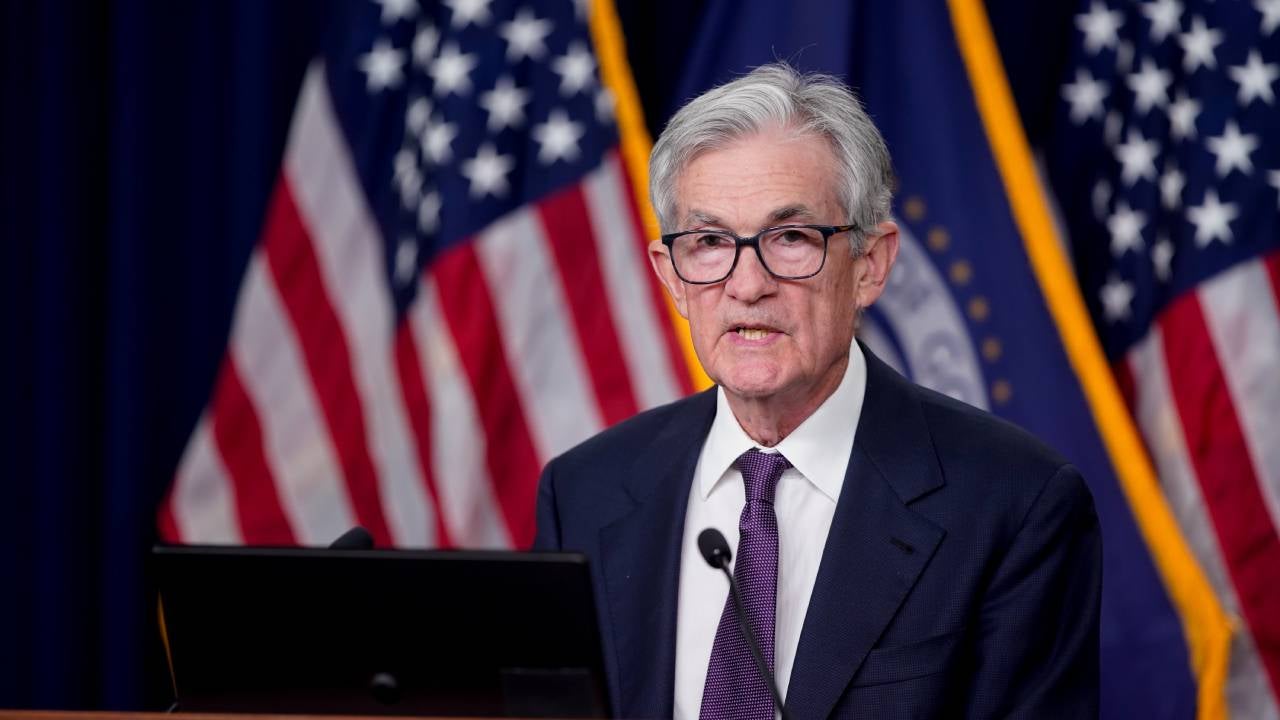Stocks have experienced a wild 2025, plunging following President Donald Trump’s tariff announcement in April, but have since surged to new highs. Still, persistent inflation and geopolitical strife have kept investors on edge. At the center of that storm has been Fed Chair Jerome Powell, whose tenure has been marked by both praise and criticism, which is especially true as he nears the end of his four-year term in 2026.
Bankrate’s Second-Quarter 2025 Market Mavens Survey asked experts about Powell’s stewardship of the central bank, what it has meant for investors and the challenges to come in nominating his successor. Their answers noted that Powell generally did a good job, but not without some missteps. His successor will be stepping into a tough role.
To give some perspective, Powell experienced some unprecedented events in his time as Fed chair. He managed the Fed’s COVID-19 pandemic response, which included early stimulus intervention and brought interest rates to near-zero levels, helping to support the economy.
Still, some of Powell’s policies have remained controversial. His early declaration of inflation in 2021 as “transitory” is sometimes viewed as a mistake that later led to delayed policy action and aggressive interest rate hikes throughout 2022. This sent stocks lower, and they eventually entered a bear market.
This string of events has left investors with mixed feelings about how well Powell has actually handled setting policy, all things considered.
Bankrate asked the Market Maven survey participants this open-ended question: “Fed Chair Jerome Powell is headed into the final months of his term. Comment on his stewardship of the central bank, what it has meant for investors, including those exposed to fixed-income, and the challenges in nominating his successor.”
“He seems to have done a solid job of navigating policy in a highly uncertain and challenging environment, with respect to shaking off the initial description of inflation as being ‘transitory’ and getting it back under control,” says Sameer Samana, head of global equities and real assets at Wells Fargo Investment Institute. “This caused some pain for investors during the pivot (from transitory to catch-up) but has been less of an issue in recent years. The key to picking a successor will come down to market perception, and how credible that person is (with markets/investors).”
Forecasts and analysis:
This article is one in a series discussing the results of Bankrate’s Second-Quarter 2025 Market Mavens Survey:
Experts praise Powell’s stability, but fault his timing errors
As Powell heads into the final year of his term, investors have to consider the broader context of his time in the position.
As the face of monetary policy during a volatile economic era that featured a global pandemic, high inflation and market swings, Powell has had to strike a delicate balance between being responsive and being restrained when it comes to raising or cutting interest rates to manage inflation and support the broader economy.
This context is important for investors to understand for two reasons.
- The Fed’s decisions trickle down and impact lots of things, like mortgage rates, credit card interest, bond yields and even the stock market, which are all factors to consider for everyday investors.
- Powell’s successor will shape how the Fed responds to inflation, potential job growth and economic downturns in the future. Trump, who has openly criticized Powell’s decision to hold rates steady, will pick that person, potentially triggering a shift in economic policy.
Responses to the Market Maven survey were mostly positive, with experts giving Powell a thumbs-up and crediting him for a steady hand amid pandemic chaos, acknowledging that imperfection is just part of the job.
“Jay Powell has served our country extremely well,” says Michael Farr, chief market strategist at Hightower Advisors. “Managing monetary policy according to a dual mandate requires as much art as science. It’s not a job that can ever be done perfectly and Powell has made mistakes. But overall, his tenure has earned an A.”
One respondent wasn’t quite ready to let Powell off the hook for being too cautious when it came to inflation, though, and criticized him for not pivoting quickly enough when other central banks were loosening their policies.
“Powell is a lame duck fighting an inflation ‘bogeyman’ that never materialized,” says Louis Navellier, CIO at Navellier & Associates, Inc. “I cannot believe Powell is ignoring the economic data. He should be following the ECB and other central banks and cutting key interest rates. Powell ruined his legacy.”
Regardless of where you stand on Powell’s track record, one thing is clear: The Fed’s next moves — and who’s going to be making them — are important to pay attention to. While the Fed doesn’t directly affect, say, your 401(k) retirement savings account, its decisions play a major role in shaping the market conditions that drive your portfolio’s performance, especially for long-term investors.
Why we ask for feedback
Your feedback helps us improve our content and services. It takes less than a minute to
complete.
Your responses are anonymous and will only be used for improving our website.
Help us improve our content
Read the full article here
















